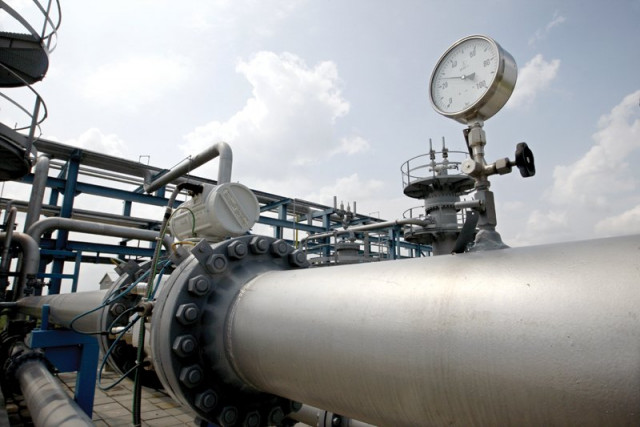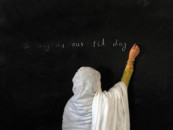Another tax: NA body gives go-ahead to amended GIDC bill
MQM, PTI members term unjustified the Rs95b collection to finance pipeline projects.

Last year, the government introduced the GIDC Bill 2014 to provide legal cover for the collection of cess from the consumers. PHOTO: REUTERS
Amid opposition from two major political parties – Muttahida Qaumi Movement (MQM) and Pakistan Tehreek-e-Insaf (PTI), a parliamentary panel has approved the amended Gas Infrastructure Development Cess (GIDC) bill to give legal cover to the collection of Rs95 billion and increase the burden on gas consumers.
Parliamentarians of the Pakistan Peoples Party (PPP) were not present during the meeting of the National Assembly Standing Committee on Petroleum and Natural Resources on Tuesday. A majority of the PML-N legislators approved the amended GIDC bill to bail out the government and provide finances for gas pipeline projects including the Iran-Pakistan (IP) and the Turkmenistan-Afghanistan-Pakistan-India (Tapi) gas pipelines.
The move was opposed by Abdul Wasim of the MQM and Nasir Khattak of the PTI, who described as unjustified the collection of such an amount from the consumers to implement the gas pipeline projects, which were still on paper. The amount was a kind of advance tax, they said.
In 2011, after imposition of the GIDC during the PPP’s term in office, 3,500 cases were filed against the government and the Supreme Court gave a stay order against the cess, stating it was a fee and not a tax.
Last year, the government introduced the GIDC Bill 2014 to provide legal cover for the collection of cess from the consumers.
The NA committee, chaired by Chaudhry Bilal Ahmed Virk, approved the bill with a majority vote.
Petroleum Minister Shahid Khaqan Abbasi said that the PPP had taken an initiative to impose GIDC on gas consumers to finance gas import projects in 2011.
He said that the PPP, MQM and even PML-N had supported it to finance gas import projects, adding gas companies required Rs300 billion to lay domestic pipelines and the IP project needed Rs200 billion.
“Only gas consumers would be paying it, if the government gets deficit financing, it will burden the common man,” he said, adding that it would be collected from those who were making extra profits by using gas.
He said that the government was ready to invest Rs6 billion to provide gas meters in Khyber-Pakhtunkhwa (K-P), but sought guarantees for bill collection. The K-P government has nominated Asad Umar to sort out the issue of gas theft.
Committee member Nasir Khattak said that the government had kept the cess open-ended which could be imposed on any sector. He said that it was an advance tax which would provide an opportunity to impose a surcharge on water to generate financing for dams.
MQM’s Wasim argued that the government should not keep it open-ended and there should be some limit. He said that there were billions of rupees of tax corruption in the Federal Board of Revenue (FBR) and the government should end it to generate revenues.
Secretary Finance Dr Waqar Masood protested over terming it an advance tax and said that it would provide funds whenever required to finance gas import projects. He said that the National Assembly had approved it and the money could be used for LNG import.
Notices to exploration companies
Director General Petroleum Concession (DGPC) Saeedullah Shah said that show-cause notices had been issued to 20 companies to cancel their exploration blocks over failure to meet the deadline of exploring oil and gas.
He said that the process of serving notices to eight more companies was under way, while licence of one company had been cancelled.
The parliamentarians expressed reservations about giving an extension to those exploration companies which had not been able to start exploration for the last several years. Shah said that there was no provision to penalise the defaulting oil and gas exploration companies during the present regime. He said that a consultant had been hired to amend the rules to penalise the companies which fail to meet the deadline of exploring oil and gas in addition to cancellation of licences.
Published in The Express Tribune, February 25th, 2015.
Like Business on Facebook, follow @TribuneBiz on Twitter to stay informed and join in the conversation.



















COMMENTS
Comments are moderated and generally will be posted if they are on-topic and not abusive.
For more information, please see our Comments FAQ